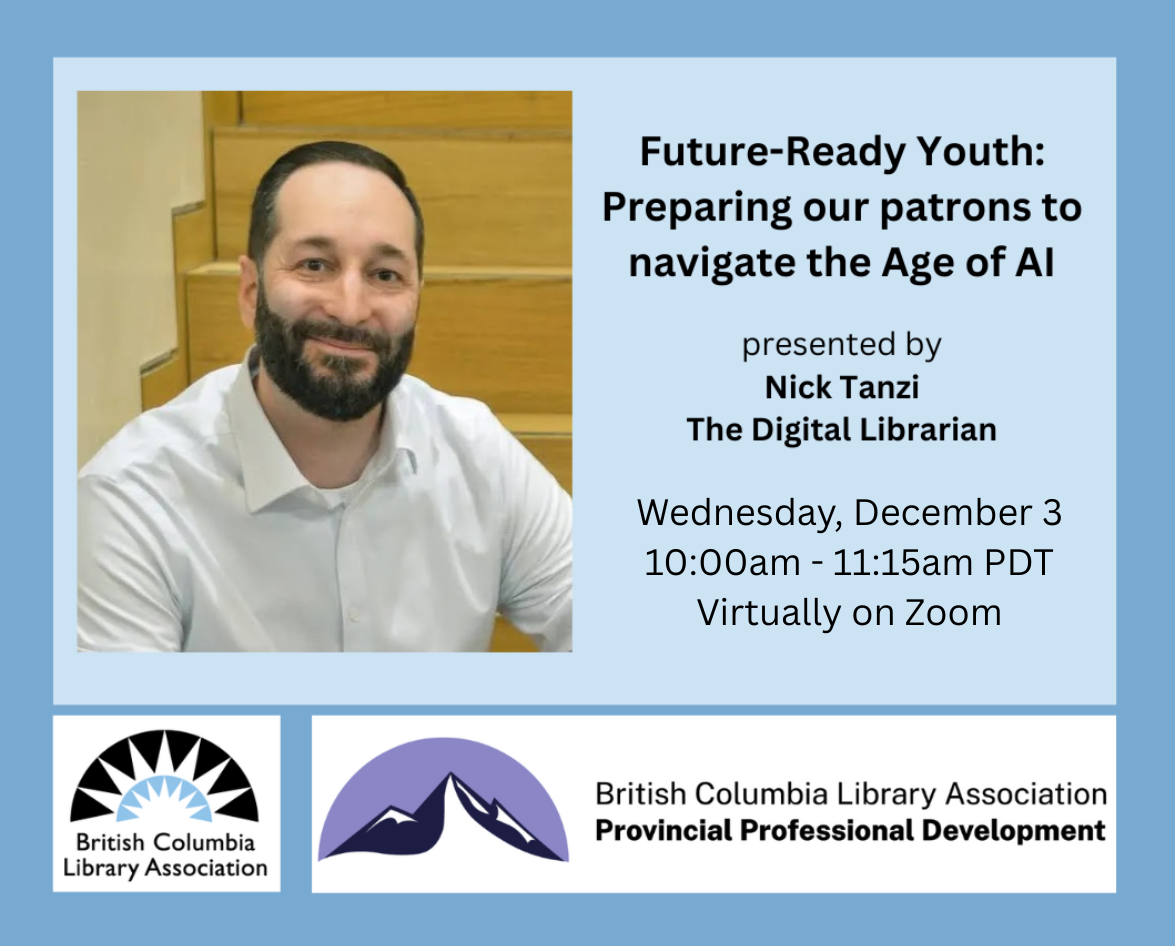We are pleased to announce that Nick Tanzi – The Digital Librarian, will be our 2025 Year-End Keynote speaker!
Title: Future-Ready Youth: Preparing our patrons to navigate the Age of AI
Description: Children and teens are often eager adopters of new technology, but access doesn’t always mean understanding. As we navigate the age of AI, important questions arise: How is artificial intelligence impacting our youth, and what does the future hold? More importantly, how can we, as library professionals, empower our patrons to understand and engage with this consequential technology?
Date: Wednesday, December 3rd at 10am – 11:15am PDT on Zoom [Registration is now closed]
Who should attend: All library workers with an added interest for library workers serving children and teens
We gratefully acknowledge the financial support of the Province of British Columbia through the Ministry of Municipal Affairs, which enables us to offer these events free of charge.
A reminder that Zoom includes closed captioning and the Vimeo recordings include a transcript. Please contact Natalie Porter, BCLA Professional Development Coordinator if you have any further accessibility needs that will enable your attendance and enjoyment of this annual presentation.
A Year-End Keynote speaker will present a webinar on a topic intended to inspire and challenge library workers in preparation of a new year. Recommendations for a presenter can be made by filling out our program suggestion form and for past events, visit our Recordings webpage.
Past Presenters
2024 - R. David Lankes
 R. David Lankes offered a presentation called Artificial Intelligence: why is it writing my term paper when it should be doing my laundry? David Lankes is a scholar, speaker, writer, teacher and advocate based out of the University of Texas at Austin’s School of Information. He is recognized for his work on Artificial Intelligence and the essential role that librarians have in today’s society.
R. David Lankes offered a presentation called Artificial Intelligence: why is it writing my term paper when it should be doing my laundry? David Lankes is a scholar, speaker, writer, teacher and advocate based out of the University of Texas at Austin’s School of Information. He is recognized for his work on Artificial Intelligence and the essential role that librarians have in today’s society.
Description : AI seems to be everywhere with forecasts from dreams to despairs. How can the library profession respond, and even better, shape this emerging technology to benefit those we serve?
2023 - Karina Hagelin
 In 2023, for our first event, Karina Hagelin (they/them) presented on Communities of Care: accessible libraries through trauma-informed frameworks and radical empathy, with themes of disability, accessibility, and the importance of collaboration and self-care.
In 2023, for our first event, Karina Hagelin (they/them) presented on Communities of Care: accessible libraries through trauma-informed frameworks and radical empathy, with themes of disability, accessibility, and the importance of collaboration and self-care.

